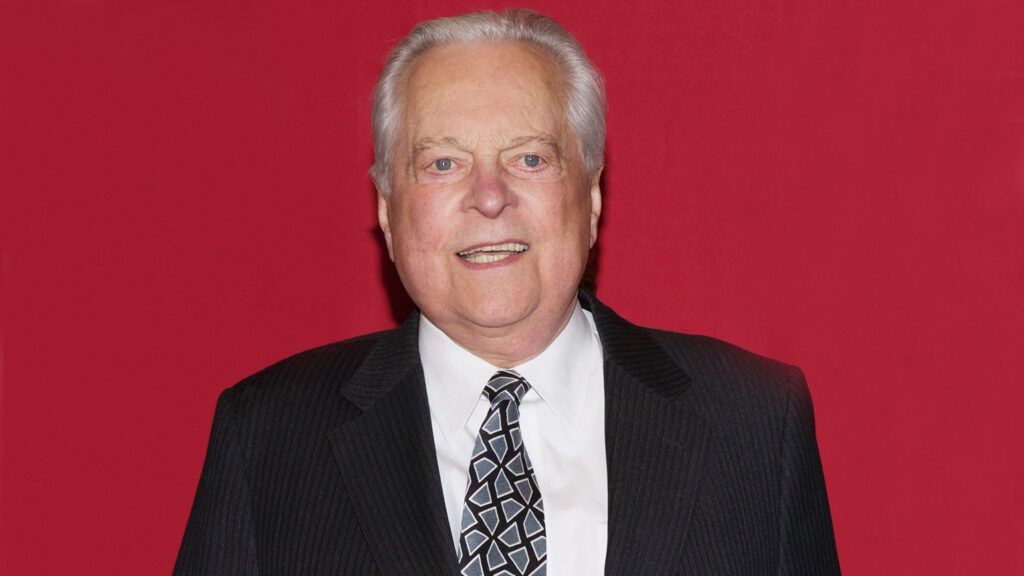Viewers of Turner Classic Movies, where I’m known for my introductions to classic films, often ask me when I became such a film fanatic. It’s hard to answer. I honestly don’t remember a time when I wasn’t thinking about the movies.
Of course, in the time and place I grew up–Colfax, Washington, in the 1940s and ’50s–everyone lived for the movies. It’s often hard for people who didn’t grow up in a place like Colfax, population 2,700, to understand just how central the town movie house was to the life of the community in those years.
The Rose Theater was Colfax’s only movie house, except for a few brief months in summer when the Roxy opened up down the street from it to accommodate the inrush of seasonal farm workers.
BROWSE OUR SELECTION OF BOOKS ON POSITIVE THINKING
Whether I stepped through its doors from the blazing heat of a summer Saturday or on a chilly night in autumn with my mom and dad, the Rose wasn’t just another building on Main Street. It was a doorway into another dimension.
The Rose was where I first saw Fred Astaire dance; where Clark Gable rescued Vivien Leigh from a burning Atlanta in Gone With the Wind; where Humphrey Bogart got the better of the Nazis in Casablanca; and where Gary Cooper stared down the bad guys in High Noon.
But thanks to the newsreels that played before each feature, the Rose was also where I saw the look in President Roosevelt’s eye when he singled out December 7, 1941, as a day that would live in infamy; where I saw the Queen Mary steaming into New York Harbor; and Allied troops marching victorious through the streets of Paris. From the wildest heights of fantasy to the darkest of realities, it all happened on that big white screen at the Rose.
READ MORE: MARY ASTOR ON THE GIFT OF FAITH
Not that the screen was ever white for long. The lights never came up (that’s why ushers always carried flashlights) and the action never stopped. Admission was only 25 cents. For that, you got the world.
The summer I turned 12, I landed my dream job: working at the Rose. I changed the posters in the glass cases out front and toted a box of plastic letters up a stepladder to change the titles on the marquee.
That was more work than it might sound like because in those days the bill switched three times a week. The big studios cranked out films like hotcakes, and it was the job of small-town movie houses like the Rose to show them all.
After a year in charge of the marquee, I was bumped up to ushering by the Rose’s owner, Mr. Weskel. I spent my next two years with a flashlight in hand, escorting people to their seats and cleaning up at the end of the day when the lights finally came on.
READ MORE: JIMMY DURANTE’S FOUR GIFTS OF FAITH
That second part of the job was a lot easier than it is today because back then there was no concession stand, so no spilled popcorn or soda to worry about. After all, people didn’t come to the movies to eat. Or to talk! Television hadn’t yet ruined people’s manners in this regard.
And, of course, there were no cell phones ringing. The theater was almost a sacred place. No one would have thought of profaning it with food and chitchat.
When I turned 15, I made it to the top of the ladder: ticket taker. Ticket takers had it pretty good in a number of ways. There was more responsibility (we had to make sure all of the ushers were doing their jobs), and we got double pay if every seat was filled on a Saturday night.
But more than watching the movies, it was the audience’s reaction that made me realize how important the movies were. Beyond entertaining and educating, they inspired.
READ MORE: JAMES STEWART ON ‘IT’S A WONDERFUL LIFE’
Throughout my young years in Colfax, the movie house was second only to church as a place to get your bearings–to find the strength to live, no matter what life threw at you, to set your moral compass.
When war broke out in 1941, all across the country we saw the first chilling images of Japanese bombs exploding above Pearl Harbor in newsreels in our hometown movie houses.
But in those same movie houses just a few months later, we watched Mrs. Miniver, starring Greer Garson and Walter Pidgeon: a film about a British family coping with the realities of life in wartime.
With bombs falling on their country every day, the Minivers somehow carried on. Life, with all its little everyday problems and joys, continued. Franklin D. Roosevelt himself credited the film with showing Americans that the outbreak of war didn’t mean that it was the end of the world.
Like the Minivers over in England, we too could make it through. The movie even came up in one of our church sermons about how Colfax could face the challenges ahead.
READ MORE: ALFRED HITCHCOCK ON THE GREATEST GIFT OF ALL
Courage, loyalty, perseverance. It was at the Rose that I learned what all those classic qualities really meant, and more besides. Maybe that’s why I love my job at Turner Classic Movies as much as I do.
For me, the movies I introduce each night aren’t just wonderful entertainment. They’re old friends. Friends that did more than just show me, as a young boy in Colfax, what the world was like. They showed me how best to live in it.
Movies That Inspire
Robert Osborne shares his go-to list of timeless classics:
Mrs. Miniver: An English family shows courage in the midst of wartime.
Sounder: A beautiful dog story and a timeless portrait of grace under hardship
I Remember Mama: Irene Dunne stars in one of the most touching family movies of all time.
Field of Dreams: Shows the importance of dreams and goals
To Kill a Mockingbird: Gregory Peck gives a magnificant performance as Atticus Finch, a good and honest man who stands up for justice.
The Miracle Worker: A portrait of how people can make miracles happen here on earth
It’s a Wonderful Life: A heavenly classic about George Bailey’s guardian angel and the preciousness of life
The Song of Bernadette: A timeless story of the power of faith and a young peasant girl in 1858 France
Ben-Hur: A sweeping inspirational epic about Imperial Rome in the time of Christ
Stars in My Crown: A great but little-known jewel that you will love, about the trials of a small-town minister
The Bishop’s Wife: Cary Grant plays Dudley, an angel who comes down to earth, in this uplifting classic.
Lassie Come Home: A testament to what love and determination can accomplish
Did you enjoy this story? Subscribe to Guideposts magazine.




